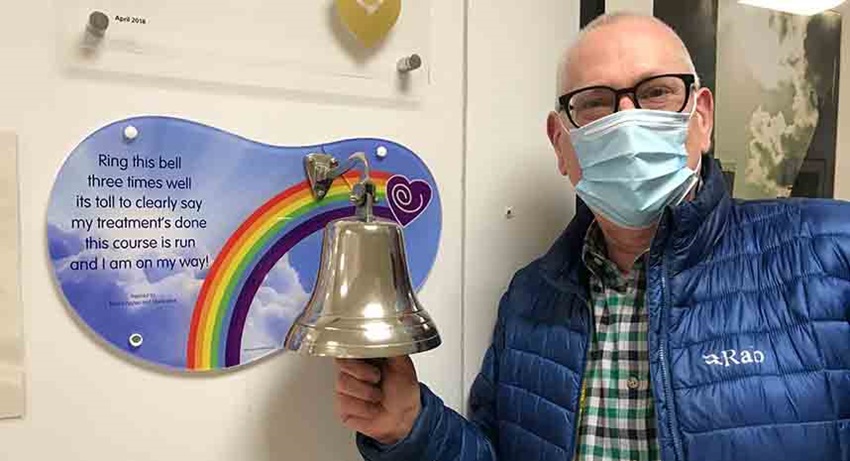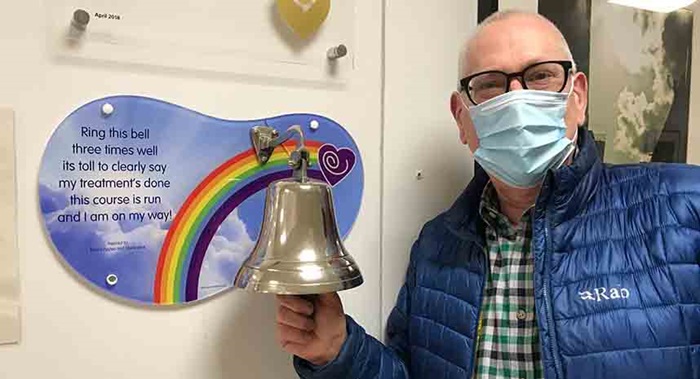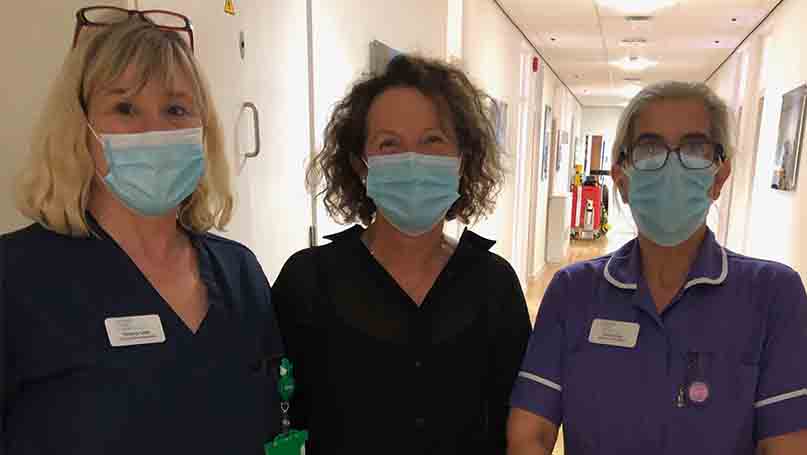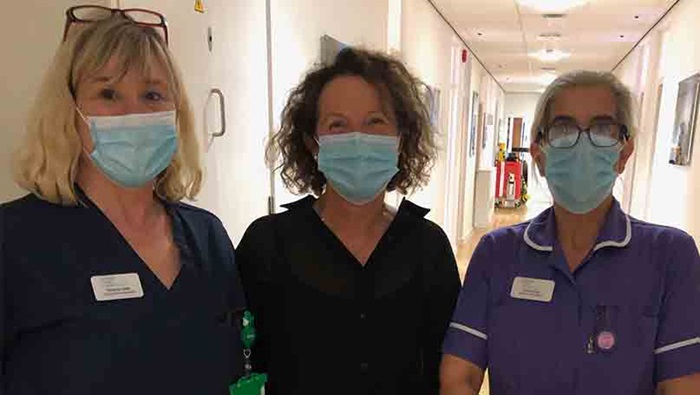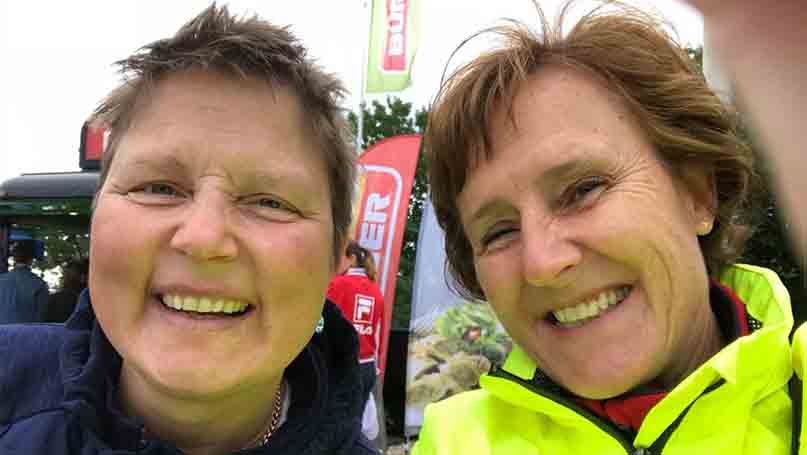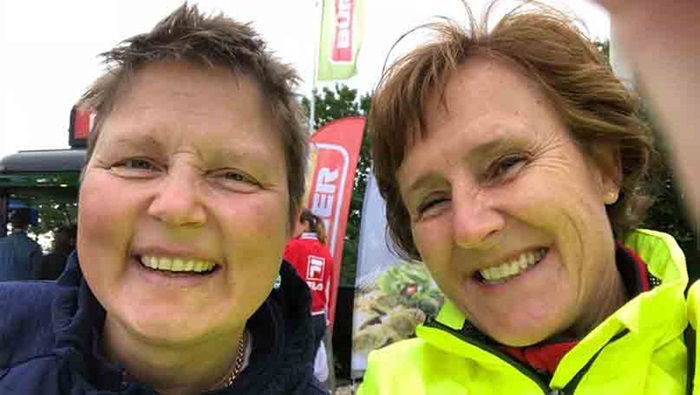Jeff's penile cancer experience

Understanding the impact that a cancer diagnosis can have on a family

We speak to Jeff Addison, a 49-year-old husband and father of two who was diagnosed with penile cancer back in 2017. When he received his diagnosis, no one close to him had been diagnosed with cancer, and when he looked online, he found very few patients who were his age and had spoken about penile cancer and its impact.
Here, he answers some questions about his diagnosis and treatment at The Harley Street Clinic and The Princess Grace Hospital, both part of HCA Healthcare UK, which he was able to access through his private medical insurance. He also shares advice that he wishes he and his family would have had when they were going through their particular journey, in the hope that it will help others.
Here, he answers some questions about his diagnosis and treatment at The Harley Street Clinic and The Princess Grace Hospital, both part of HCA Healthcare UK, which he was able to access through his private medical insurance. He also shares advice that he wishes he and his family would have had when they were going through their particular journey, in the hope that it will help others.
Jeff's story
Tell us about when you first noticed something was wrong?
In 2017, I noticed a small ulcer on the head of my penis. At the time I thought nothing of it as it wasn't painful, nor was it causing problems when I urinated or when having sex, so I didn't see anyone about it. However, it soon started to grow, the affected skin became hardened and I noticed I was urinating more frequently, so I went to see my local GP.
Whilst my GP didn't seem too concerned, he referred me to a urologist who I had a consultation with and was given a biopsy of the affected area. Two days later I received results which I wasn't expecting at all – that I had penile cancer.
How did you and deal with the diagnosis?
For me, hearing those words 'I am sorry you have cancer' was a complete and utter shock - I look after myself health wise and I always had bundles of energy, I had not sensed that something more serious was wrong and I hadn't prepared to be told that it was serious.
On hearing these words, I didn't feel emotional, my natural reaction was instead to move to solution mode. I am used to leading and finding solutions, and that was what I did, I immediately thought within seconds of being told, I need to build a team around me that can deal with this.
I instantly started asking questions of the urologist, not about my condition, but focussed on getting the right person in my camp. I asked 'Who are the top 10 penile cancer surgeons in the world? Who would you want to treat you if you had my diagnosis?' After hearing the answer to my second question: 'Mr Muneer', my response was 'OK, let's make contact'. The response I received back was 'yes I can write to him'. I instead came back with 'great, but let's get his number and call him now and get a meeting booked'.
How did your family react to the news?
Looking back, that moment reflects how I took on my battle with cancer. I saw it as a problem that needed solving and set about having a sense of control over sorting it out. My wife Catriona heard those words at the same time and didn't react the same way. She was upset and the tears just kept flooding down her face; what she needed right then was a hug and some reassurance - our reactions were totally natural for us.
I have always believed that experience goes along way and I wanted an experienced consultant in successfully treating penile cancer. This led me to Asif Muneer, Consultant Urologist at The Harley Street Clinic, someone I have the greatest respect for and who I now consider a friend.
During my consultation, he booked me in for surgery to remove the lump. I spent every moment before the surgery making sure that I was as healthy as I could be, and that I knew as much about my condition as humanly possible. After all, whilst Mr Muneer's job was to focus on removing the tumour, it was my job to get myself in the best shape and know plenty about my condition. Knowledge felt like power and reinforced my sense of feeling in control.
But before any surgery could take place, we knew that we had to break the news about my cancer diagnosis to our two sons, then aged 13 and 17. We've always been open and transparent with our children, so we knew that telling them about this would be no different. It felt especially difficult because I knew how much they had going on in their lives at the time besides my diagnosis. Our eldest son was about to turn 18 when we told him, and he was in the second year of his A levels. He was playing rugby for an academy, with games all over England and he had been appointed Head of School, whilst our youngest son had just moved to senior school. I had never had any history of bad health, so my news really did knock them for six, but they were brilliant. They showed compassion and the more we talked about it, the more we normalised it.
On the morning after my first consultation with Asif, I arranged a call with my work. It came as quite a shock to my colleagues, as I hadn't been ill or shown any signs of being ill. I was the finance director in a large company, so it was important that it was handled well. The business needed to continue with minimal disruption, so I decided that my senior team should know what was going on and I should tell them. I asked for their support to lead and help the business whilst I would be away. It was a difficult conversation for everyone, they didn't know what to say and I couldn't say how long I would be away. I felt bad for not being there to help them, but also knew it was important that I focussed on overcoming the cancer.
How did you cope with your treatment?
On the day of my first cancer surgery, I was nervous, but I was also incredibly focused not on the procedure, but how I could best recover. I had researched what I should be eating before and after surgery, I had researched how I could deal with inflammation and how I could reduce the risk of blood clots - I aimed to leave no stone unturned. The surgery went well and the growth was removed. I then had another surgery quite soon after to check whether the cancer had spread to my lymph nodes, which thankfully it hadn't, and I was put on a course of radiotherapy.
However, a few months later, I noticed another ulcer had appeared in an area close to the initial ulcer, and after seeing Mr Muneer, I was told the cancer had returned. I again underwent a procedure to remove the lump and any surrounding cancerous tissue. I did feel deflated when it came back for a third time three months later in a similar area. Asif was trying to get the balance between removing the cancer and keeping as much of the penile head as possible.
On the third occasion, the best way for me to explain my feelings were that it felt liken to starting a marathon, getting to the 20th mile and then being told that in fact you've had a false start and you have to go back to the beginning again. Having multiple surgeries was incredibly draining and challenging but I remained upbeat, I never lost sight of the outcome we were working towards. Both Mr Muneer and I knew when it came back for a third time that something more had to be done.
Asif and I spoke about the options going forward, which I had already researched. This time, to ensure that all of the cancer could be removed, we agreed that I would undergo a partial penectomy – the removal of the head of my penis. I was concerned about two things ahead of the procedure; firstly, how easy would it be to urinate following surgery and how would that work, and secondly, would I be able to retain any feeling or sensations during intercourse with my wife?
I underwent surgery at The Princess Grace Hospital in April 2018 and was in hospital for six days. The partial penectomy surgery was a complete success, and I was fitted with a urinary catheter for a few days. When I first came out of surgery, there were so many bandages wrapped around my penis that at first, I didn't know whether it had been a partial amputation or an enlargement!
A challenging recovering, but one which I knew I could overcome
In all seriousness though, it was an incredibly challenging operation to recover from, as there was a lot of wound care involved and recovery from skin grafts. Everyone at The Princess Grace Hospital was amazing though, I spent a lot of time laughing with my nurses. I think at first, they might have thought I wanted to be private about my operation, but I remained very open and honest and said, treat me in the same way that you would treat someone who had a broken limb – that was enough to tell them what my mindset was. It often meant that they would check on me first when they started a shift, as I always greeted them with a smile, asked how they were and enjoyed a joke, this was my way of dealing it.
Although I was discharged after six days – I knew that my road to recovery would mean that this would be far from my last visit. I went back to The Harley Street Clinic every two weeks for the dressings to be checked. During this time, I was only permitted to have bed baths to avoid the wound getting wet, which I didn't like at all as I like to feel clean and also it felt odd not being able to do such a basic task.
Dealing with the impact of my treatment
People might think that the operation was the most difficult part of my journey, when in fact, adjusting to life after surgery was the greatest challenge. Once my catheter was removed, I had to relearn how to go to the bathroom again as I didn't have the sensation of needing to go to the toilet. The longer I was able to leave it, the more I was able to stretch my bladder and so forth.
I also often get asked whether having a partial penectomy has impacted my relationship with my wife. Naturally it has had an impact, as when they removed the head of the penis, I lost sensation in that area as that is where the nerve endings are. However, like many amputees, you can relearn feelings and sensations. I have been told that amputees can remember what it's like to have a leg or an arm and it's the same for me, I have learnt to remember what that sensation felt like. I've been with my wife for over 25 years, so we have an incredibly strong bond. You can share love with people in different ways, there are so many ways you can be caring, loving and tactile.
Was it a difficult decision to opt for the partial penectomy?
I know that it was the right decision to have a partial penectomy. Given that the cancerous growth kept coming back in such an aggressive manner I truly believe it was right time to move forward with this surgery. We had been through a number of surgeries before, and this would assure me that the cancer would be fully removed, and we could move on.
Following the surgery, I went from having appointments every fortnight, to then monthly, and then moved to every three months for the first half of 2019. Then in August 2020, I was told that I wouldn't need to come back unless I notice anything concerning, which was a huge relief and felt rewarding for me and everyone that supported me through the journey. I am very happy and healthy and couldn't be more grateful to everyone that supported me.
How has having cancer changed you as a person?
People ask what I've learnt from this experience – I have always had a very positive outlook, can do attitude and been very practical which has helped me take on various challenges. These attributes remain at my core and I remain hungry to make things happen and improve situations. However, the experience has definitely increased my resiliency and I am now a much better humanitarian, you don't always know what someone could be going through!
Learn more about the private cancer care we offer to patients
More of our patients share their stories
This content is intended for general information only and does not replace the need for personal advice from a qualified health professional.
